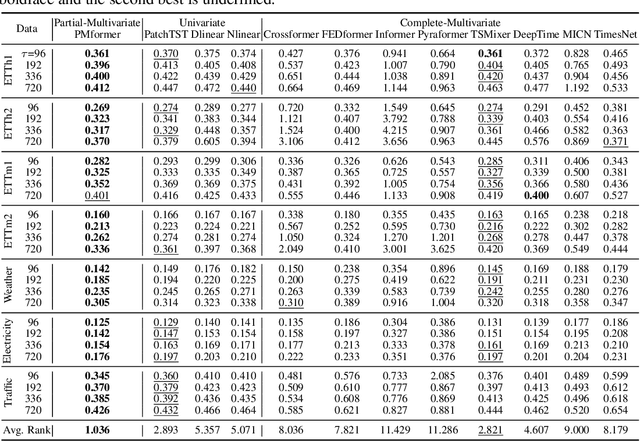Partial-Multivariate Model for Forecasting
Paper and Code
Aug 19, 2024



When solving forecasting problems including multiple time-series features, existing approaches often fall into two extreme categories, depending on whether to utilize inter-feature information: univariate and complete-multivariate models. Unlike univariate cases which ignore the information, complete-multivariate models compute relationships among a complete set of features. However, despite the potential advantage of leveraging the additional information, complete-multivariate models sometimes underperform univariate ones. Therefore, our research aims to explore a middle ground between these two by introducing what we term Partial-Multivariate models where a neural network captures only partial relationships, that is, dependencies within subsets of all features. To this end, we propose PMformer, a Transformer-based partial-multivariate model, with its training algorithm. We demonstrate that PMformer outperforms various univariate and complete-multivariate models, providing a theoretical rationale and empirical analysis for its superiority. Additionally, by proposing an inference technique for PMformer, the forecasting accuracy is further enhanced. Finally, we highlight other advantages of PMformer: efficiency and robustness under missing features.
 Add to Chrome
Add to Chrome Add to Firefox
Add to Firefox Add to Edge
Add to Edge